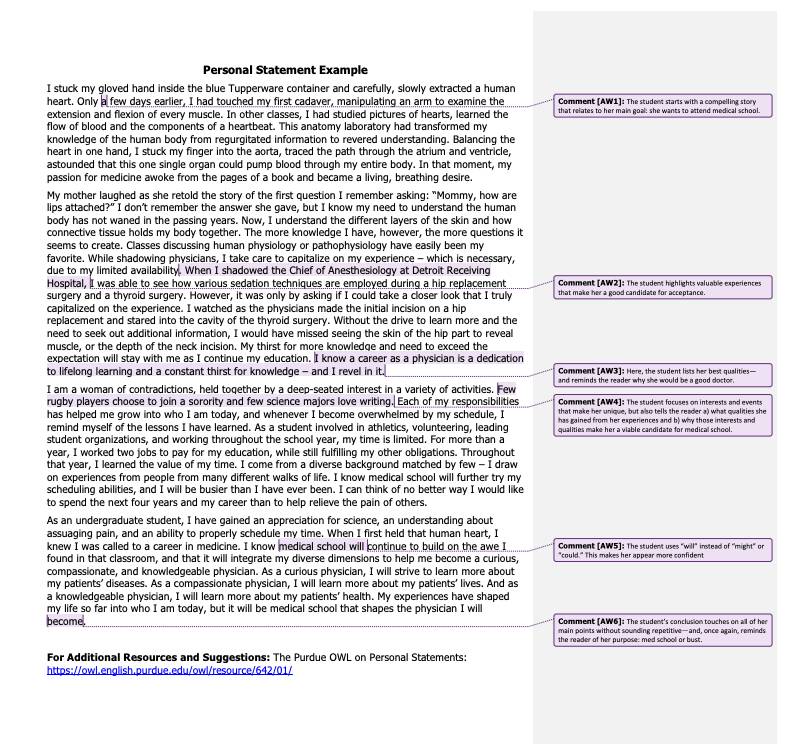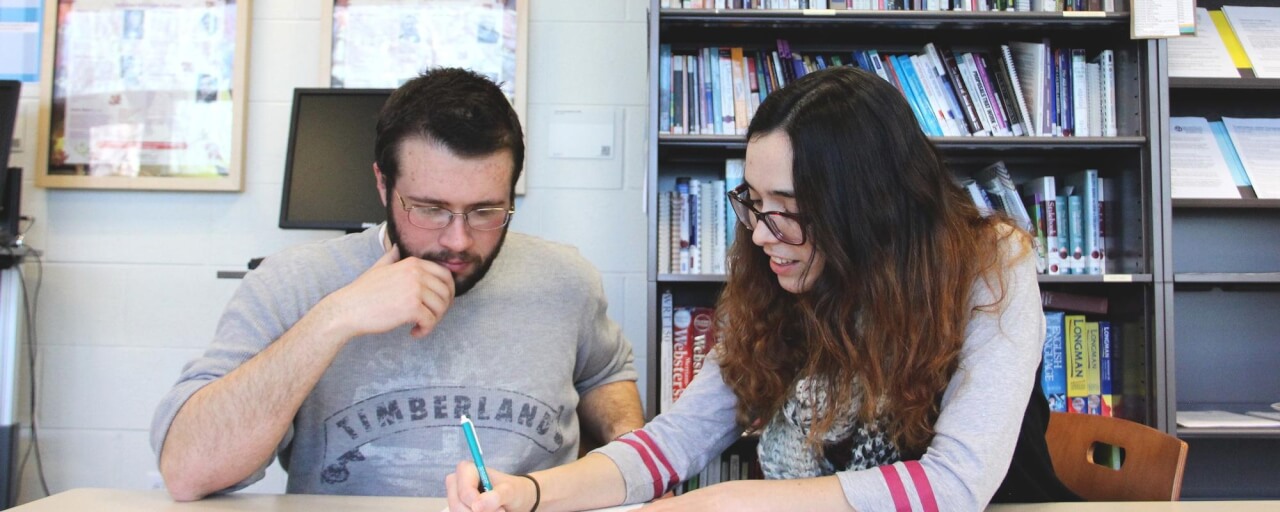Personal Statements
A Personal Statement Is:
A written document requested by many universities, graduate programs, scholarships, and grants that is meant to give an idea of who you, as the applicant, are, and why you should be considered.
Before You Begin:
- Do some research. What about this program, university, or grant is interesting to you?
- What is unique about it? What types of people have they accepted in the past?
- Think about yourself. What about you should interest the program, university, or grant?
- What is unique about you? What qualities do you have that are specifically related?
- What experiences have you had in the past that make you suited to this?
- Think about the future. What goals do you hope to accomplish that would be made more realized through the acceptance of this award? Remember, they are making an investment in you—what will they gain by accepting you?
- Make sure you read the entire prompt. Are there specific questions you must answer?
Tips and Tricks:
- Start with a story. Capture your reader’s attention by placing them in an interesting point your life. Don’t just tell them who you are, show them. If you can hook them in your first paragraph, they’ll read through the end.
- Focus on unique and applicable characteristics—lots of people are hard-working and want to help people. Likewise, lots of people are adventurous and desire to experience other cultures. What makes you different, and why do your unique qualities mean you have to go to medical school/receive a study abroad scholarship/become a lawyer?
- If there are things you need to explain about your past in order to remain competitive, explain them: for instance, if you had a sudden dip in GPA, if your GPA has steadily risen, or if there are gaps in your education, consider addressing the issue and let the readers know why they shouldn’t be concerned.
- Make your conclusion clear and memorable. Your first and last paragraphs should be carefully constructed to help you stand out.
Remember:
- Your personal statement is a formal document, so try to avoid conjunctions (ex: “don’t” should be “do not”) and informal writing.
- Grammar and mechanics are important. Read your paper with someone you trust in order to catch any mistakes before you submit. Double-check for things like punctuation at the ends of sentences.
- Don’t trust your computer to spell-check. A misspelled word can distract readers, so have a real human being proofread for any spelling errors.

To view or print our Helpful Handout, click here: Personal Statements
Have other questions? Stop in and visit! Or call us at 331-2922.
[1726082679].jpg)

